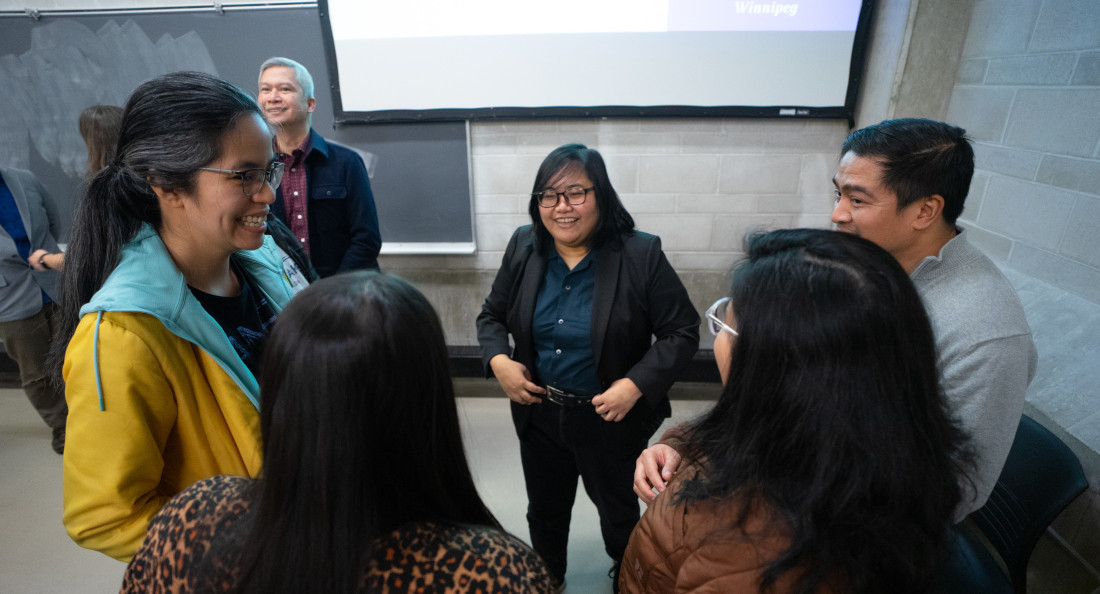‘Objectivity is a myth,’ human-rights journalist says
Jodesz Galivan delivers McLuhan Fellowship lecture at U of W
Jodesz Galivan’s coverage of the Philippine drug war questions the limits of journalistic objectivity in the face of overwhelming human-rights abuses.
Since 2017, Galivan’s investigative reporting for independent digital news outlet Rappler has shone a light on the trauma borne by families of the thousands of Filipino civilians killed in “anti-drug operations” under the government of former president Rodrigo Duterte.
In her Marshall McLuhan Fellowship lecture at the University of Winnipeg on Feb. 12, Galivan drew on her experiences at Rappler to make the case for a journalistic approach that focuses on building community and trust, rather than objectivity.
“The old guards of journalism in the Philippines, they’re mostly from the perspective of purist journalism ... two sides, he-said, she-said kind of journalism,” Galivan says.
“In the aftermath of the human rights abus- es under Duterte, it kind of made them realize that we have to pivot our way of journalism if we want to survive and actually build more trust with the people.”
Duterte was elected in 2016 off of a campaign that promised to end “crime and corruption” within six months. As a candidate, Duterte drew international attention for boasting that he had run “death squads” as mayor of Davao City and threatening the mass extrajudicial execution of alleged criminals.
Galivan says that, in spite of Duterte’s calls for the execution of “son of a bitch” journalists, she has always been more concerned about her sources’ safety than her own.
A labour leader who chose to be named in Galivan’s 2021 coverage of the “Bloody Sunday” killings of nine activists was assassinated a month after her story was published.
This anecdote and others Galivan shared shore up her contention that journalists who are willing to put in patient, long-term work to build trust with vulnerable communities gain access to perspectives rarely present in traditional media coverage – perspectives that can often shed light on issues that had otherwise been ignored.
In 2019, the Vancouver drug user-led podcast Crackdown exposed the disastrous consequences of a previously unreported provincial cost-saving measure, dubbed “the switch,” that disrupted 15,000 methadone patients’ access to the live-saving medicine.
Crackdown’s mission statement states “some of the most powerful journalism comes from a particular point of view.”
In her talk, Galivan encouraged journalists to let go of the notion that they should be indifferent toward the subjects they cover, advocating instead for a disposition of “sensitivity, interest and an intense desire to seek justice.”
She says long-term thinking and a belief that journalism doesn’t end when a story is published can deepen the potential for reporting to spark positive change.
Responding to an audience question, she argued that when it comes to reporting on human-rights abuses, “objectivity is a myth.”
“If you’re trying to always be objective, people will question you like, ‘Why are you taking a stand? Why are you not interviewing this person?’” Galivan says.
She says, in human-rights reporting, “(the more you) focus on objectivity, the more you have to explain yourself to people. When you’re honest, you can do your work. You can just ignore these naysayers.”
Published in Volume 78, Number 19 of The Uniter (February 29, 2024)







